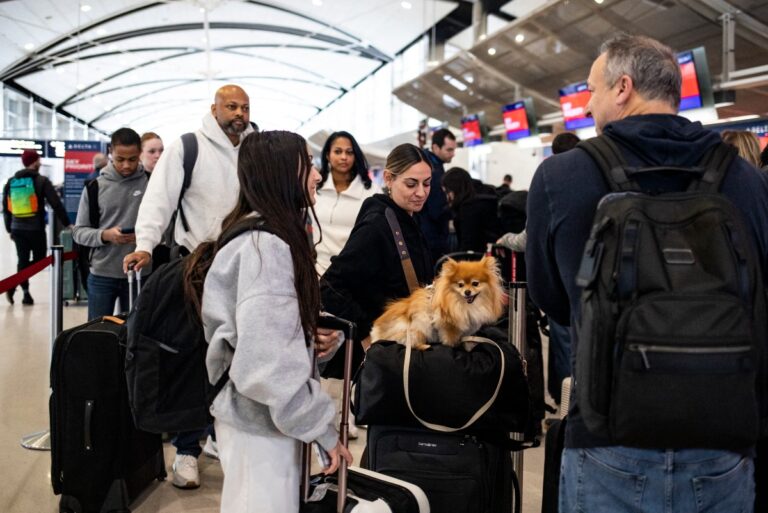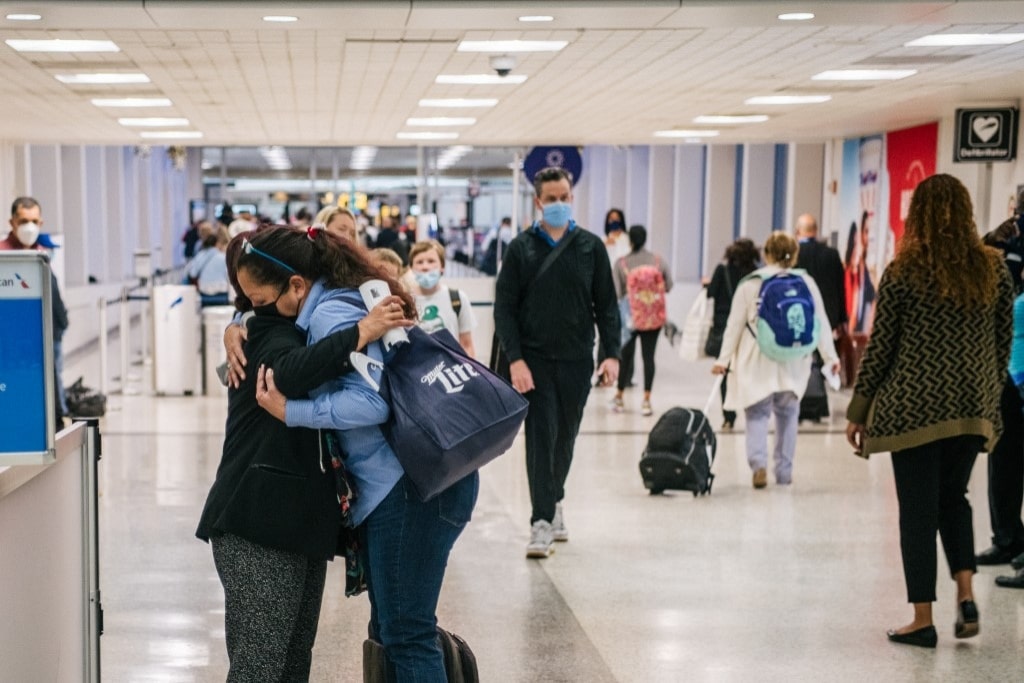
Choosing to study abroad often means leaving your family behind. For younger international students, this may come easy, especially if they’re single and have no one depending on them.
But for some others, they have to choose between going abroad to study, or leaving their partner, parents, and/or children behind. This has led to many of them putting their study abroad dreams on hold.
Thankfully, there is some good news for those struggling with this plight. You don’t face the same limitations in all countries, as some countries offer dependent visas that allow you to bring your spouse and family along.
With these dependent visas, you don’t have to bear the stress and emotional strain of leaving your loved ones behind. And as a bonus, they’ll be with you to share all the experiences and opportunities your study abroad journey may bring.
And who knows? Perhaps you may even choose to settle down there and start life anew.
This announcement comes as part of a range of changes the government has made to reduce migration to the UK, while still remaining committed to its target to host 600,000 international students studying in the UK per year by 2030.
As such, since January 2024, only family members of international students who fulfil the following UK dependent visa requirements will be granted a dependent visa:
- undertaking a PhD or other doctoral qualification, or a research-based higher degree (such as a master’s by research)
- studying a programmed of more than six months and you are in receipt of a full government scholarship (fees and living costs)
The UK government considers the following as your dependents:
- spouse
- civil partner
- unmarried partner you’ve been living together with for a minimum of two consecutive years)
- your children under 18 years old
The government tightened the ban in March 2024, further restricting overseas care workers from bringing dependent family members to the UK. This measure aimed to address what the Home Office has described as a “disproportionate” situation where 120,000 dependents accompanied 100,000 workers on the care visa route last year.
However, the UK contends that the changes are vital to prevent the exploitation of care workers, who have been offered visas under false pretenses, often for nonexistent jobs or wages below the minimum required. The measures include raising the salary threshold for skilled workers and removing the 20 per cent “going rate” discount for migrant workers in shortage occupations.
While this may sound grim for those intending to migrate to the UK, thankfully, there are still some countries that have much more lenient visa rules for you to bring your family along. Let’s take a look at some options:
5 countries with dependent visas that let you bring your spouse and family
Australia
If you have always wanted to study in the Land Down Under, you’ll be pleased to know that Australia is one of the countries allowing you to bring your spouse and family along with you.
The dependent visa programmed was created with the aim of luring more skilled migrants into the country.
When applying, you can either include your spouse and family on your original student visa application or apply for their visas once you have started your course. The visa is eligible for spouses and unmarried children under the age of 18.
If you choose to include them when applying, you will need to provide evidence of your relationship, which includes lease agreements, registration documents, ownership documents or birth certificates, in your Form 157A.
When applying, you must have a minimum of 12 months’ validity on the visa and substantial funds and insurance to cover all your expenses for this period.
If you choose the latter, you must submit the following documents:
- Form 919: nomination of student dependents
- Form 157A: student visa application form
- A letter from your lecturer stating your course name, length of course, expected completion date and your progress so far
- Proof of finances: bank statements, loans, etc.
- Proof of family ties: marriage or birth certificate
- Proof of school enrollment if you have children.
- Proof of health insurance
But the best part about choosing to further your education in Australia is that your family not only gets to follow you but can also work while there. Here, the dependent visa allows your spouse to work or even be self-employed.
But do note that the work rights given to dependents will be according to your level of study. If you are pursuing an undergraduate course, your dependent can work 48 hours per fortnight. However, if you are enrolled in a postgraduate course, your dependent can work without any limitation.
The cherry on top? The Australian government has significantly increased the base pay of skilled migrants from 53,900 Australian dollars to A$70,000.
Allowing your spouse to work is a great flexibility that not all countries offer — take the US for example. It’s notorious for issuing F-2 visas, which allow spouses of international students to live in the US but bans them from working.
Canada
Every year, hundreds of thousands of international students travel to Canada to pursue higher education. In 2023, nearly one million international students chose to study abroad in Canada.
Why is Canada so popular? Aside from great cities, prestigious universities and scenic spots like the majestic Niagara Falls, Canada is one of the countries that issue dependent visas to international students with spouses and families.
And the country has plans to welcome more international students and dependents. Its latest Immigration Levels Plan for 2024 to 2026 aims to strengthen the economy, reunite families and help refugees. It targets the admission of 485,000 new immigrants in 2024 and 500,000 in 2025 and 2026.
Before you celebrate, however, there are several requirements to qualify for a dependent visa. For example, your spouse must be married for at least one year to be eligible. They will also have to undergo a language test to determine their proficiency and then move forward with the application.
International students and their partners are advised to apply at the same time to avoid any delays, as the process can take up to three months.
All you have to do is submit your application form, language proficiency test results, marriage cert, proof of funds, loans, etc.
But that’s not all.
The Immigration, Refugees and Citizenship Canada (IRCC) offers each international student’s spouse the option to work full-time in the country.
The spouses of students will be eligible for an open work permit valid for the same period as the student’s study permit.
The work permit will have the same period of validity as the student visa will have.

Discover all Germany has to offer with your loved ones by your side. Source: AFP
Germany
Gutin Tag! Imagine studying in Germany while enjoying incredible beer, juicy Bratwurst and delicious Brezel, all while you have your spouse and family by your side.
Of course, besides the great food and drink, Germany tops the list for the best country to raise a family as an expat for many other reasons. The country boasts an excellent education system, many work opportunities, a growing economy and a higher median salary than most European countries.
With Germany’s dependent visa, also known as a family reunion visa, this dream can become your reality.
The visa permits your spouse and children to join and live with you temporarily as you complete your studies. If you tick all the requirements, you can bring your family members to live with you during the study period on your visa
These requirements include:
- Sufficient money to cover the entire period of your stay
- A proper place to live
- Marriage license
- Your partner has to be over 18 years old
- A1 level of the CEFR in German
- In a course that is at least one year or more
What’s more, family visa holders can work in Germany if they are of working age and fit all the requirements.

Dependent visas ensure that families get to stay together while chasing their dreams. Source: AFP
New Zealand
With a dependent visa, your spouse can follow you as you fulfil your study abroad dreams in one of the most beautiful countries in the world.
Aside from its beautiful landscapes of mountains and lakes and its quality education, New Zealand is also highly sought after as you can bring your family along for the journey.
Under the Skilled Migrant Category, you can live, work and study in the country indefinitely with your spouse and children aged 24 and under. Other types of visas are also available — check out the visitor visa, student visa, or work visa for similar options. It depends on your level of study in the tertiary course.
A dependent child can study at a primary or secondary school in the country. This means your child is treated as a domestic student, who doesn’t have to pay tuition fees for them to go to school. However, do note that some higher education institutions will still require international student fees.
Additionally, spouses who are staying for more than six months can apply for a partner of a Worker Work Visa, which is a permit with open work rights, allowing them to find work in any field or be self-employed.

For the seventh year in a row, Finland has ranked as the happiest country in the world. Source: AFP
Finland
According to the World Happiness Report, Finland was the happiest country in the world in 2024 for the seventh consecutive year. And there is no denying its title.
You will find clean air, beautiful landscapes, world-class universities, affordable education and safety here.
If you plan to study in Finland, your spouse can apply for a residence permit to join you. The application will be processed together by Finnish immigration.
The good news is if your spouse plans to work while you complete your studies, they can apply for a residence permit. Once the permit is approved, they can work full-time while in the country.
These are the family visa requirements:
- A valid passport
- PK1 plus form to apply for Finnish residence
- Birth certificate
- Marriage certificate
- Proof of finances
- Proof of your residence
- Source: https://studyinternational.com/news/dependant-visa-countries-bring-family/

